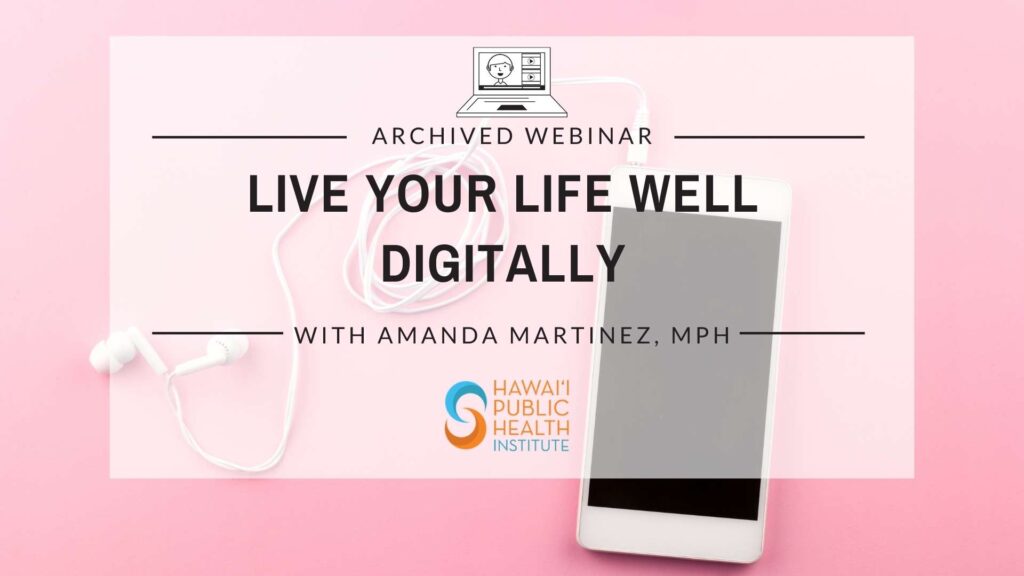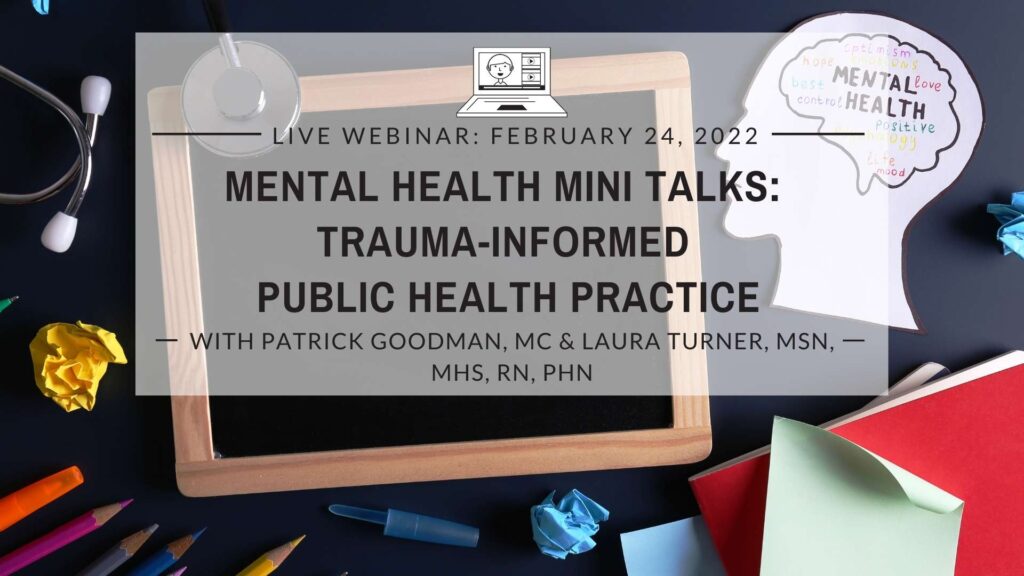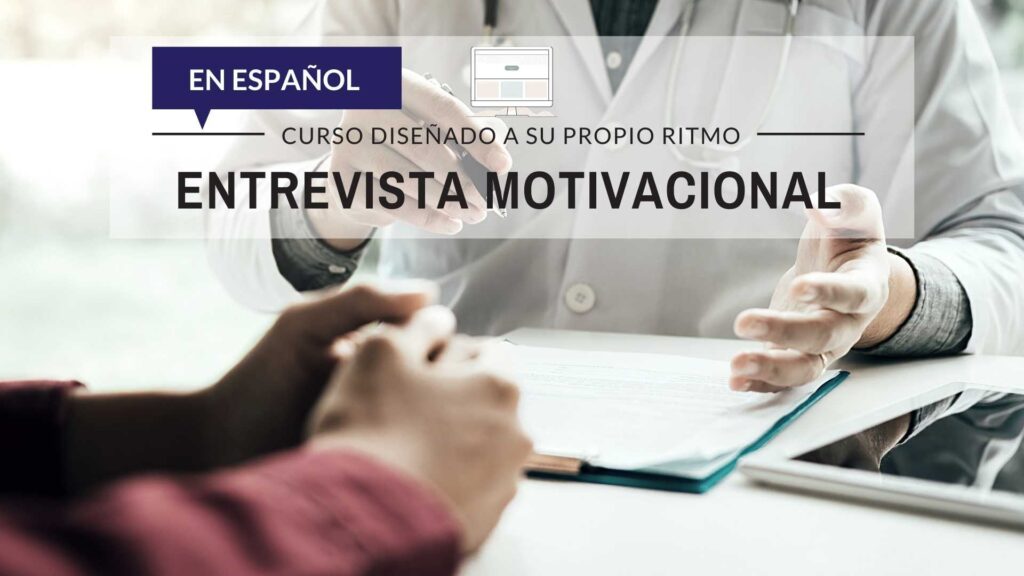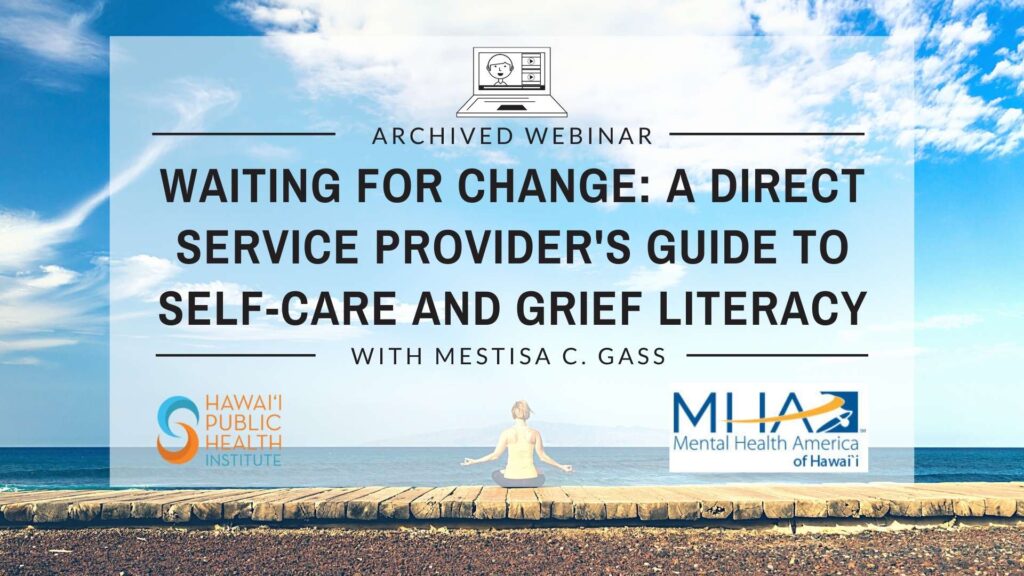This webinar reviews the importance of self-care and coping skills to manage anxiety. It discusses three distinct ranges of anxiety and skills to use in addressing anxiety at each level. Coping skills for self, others, and keiki will be reviewed. Online community resources will be briefly discussed.
Learning Objectives:
- Participants will be able to understand the importance of self-care
- Participants will learn skills that are helpful in managing anxiety at the 0-40, 40-60, and 60-100 ranges
- Participants will be able to identify skills for self, others, and keiki
- Participants will be able to identify crisis resources that are available
Target Audience: Public health professionals
Duration: 1.5 hours
Continuing Education Information: 1.5 Category 1 credits for CHES
CHES Provider number: 99036Format: Recorded webinar
Recorded: 3/18/2022
Presenter: Amanda Martinez, MPH
Disclosures: The planners, reviewers, and authors have no declared conflicts of interest











